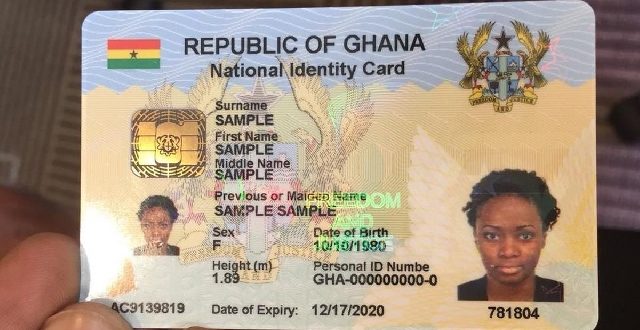Professor Kenneth Agyeman Attafuah, the Executive Secretary, National Identification Authority (NIA), says the Authority has registered more than 15 million Ghanaians at the end of the nationwide Ghana Card registration and mop-up exercises.
He said out of the total, more than eight million were females and while above seven million were males.
Prof. Attafuah disclosed this on Wednesday in Accra to formally announce the completion of the nationwide mass Registration and the mop-up registration exercises.
The briefing session provided the Authority with an opportunity to share some activities and milestones of the NIA toward the attainment of a robust, dependable and resilient National Identification System (NIS).
Prof. Attafuah said despite the end of the mass registration exercise, institutional and household registrations were currently ongoing and asked interested individuals and institutions to contact the NIA via its website ( www.nia.gov.gh ) to apply.
He said out of the 15,549,242 million people enrolled, the total Ghana cards printed was 14,689,672 with the total cards issued being 13,848,697.
Prof. Attafuah noted that the total cards printed but not issued was 840,974; while the print backlog stands at 859,570.
The number of people, who registered with required documents was 3,306,799 while 12,191,654 registered through vouching.
The occupational breakdown of the more than 15 million people captured in the enrolment include farmers 3,183,545; students 2,707,952; retail market traders 1,642,706; unemployed 905,523; and business man/woman 617,833.
The rest are tailors, dressmakers, sewers, upholsters and related workers 525,876; teachers 523,907; hairdressers, barbers, beauticians and related workers 424,688; car, taxi, and van drivers 351,102; and retired 328,940.
Persons with Disabilities (PWDs) are 75,874; these are made up of 24 different disabilities of, which visual impairment was the highest.
The age distributions are Persons; above 60 years 1,382,134; Persons between 18yrs-60yrs 13,251,803; Single Men (18+) 3,097,014; and Single Women (18+) 2,717,843.
Other population dynamics are widowers 89,178; widows 701,685; divorced 512,409; and challenged 3,047.
Prof. Attafuah said the key milestones achieved by the Authority were pursued, following a policy directive from Government in 2017 to the NIA to work in partnership with Identity Management Systems (IMS) Limited – a subsidiary of the Margins Group, to develop and implement modalities for revamping the NIS and to ensure its effective implementation according to that policy directive and under the guidance of the Governing Board and the sector Minister.
Some of the achievements include; implementation of the transfer of NIA’s technical back-end system from the premises of its private partner under the Public Private Partnership (PPP) Agreement – Identity Management Systems (IMS) Limited – to a secure facility of the Bank of Ghana.
Implementation of the Factory Acceptance Test (FAT) and Site Acceptance Test (SAT) of NIA’s back-end system and implementation of the Operational Acceptance Test (OAT) – of the back-end system, which is the last stage in the process of handing over the technical system.
He said the National Identity Register Act, 2008 ACT 750 had designated some institutions as “user agencies”, namely the Social Security and National Insurance Trust, the National Health Insurance Service, the Revenue Agencies Governing Board, the Ghana Immigration Service and any other public or private organisation approved of by the Minister, which requires identity data from the Authority.
Section 72 of the Act mandates the Authority to collaborate with the said user agencies.
Prof. Attafuah noted that accordingly, NIA had signed a Memoranda of Understanding with some of the agencies and was currently at various stages of discussions regarding data harmonisation and integration with the Ghana Revenue Authority, National Health Insurance Authority, Social Security and National Insurance Trust, Electoral Commission, and Driver Vehicle and Licencing Authority
He added that requests by other organisations to be classified as User Agencies were under consideration.
Source: GNA
 Home Of Ghana News Ghana News, Entertainment And More
Home Of Ghana News Ghana News, Entertainment And More




